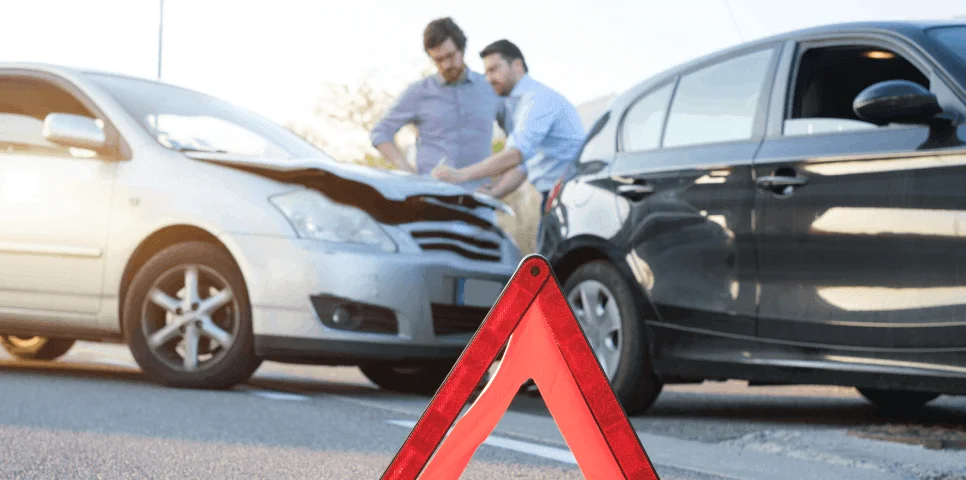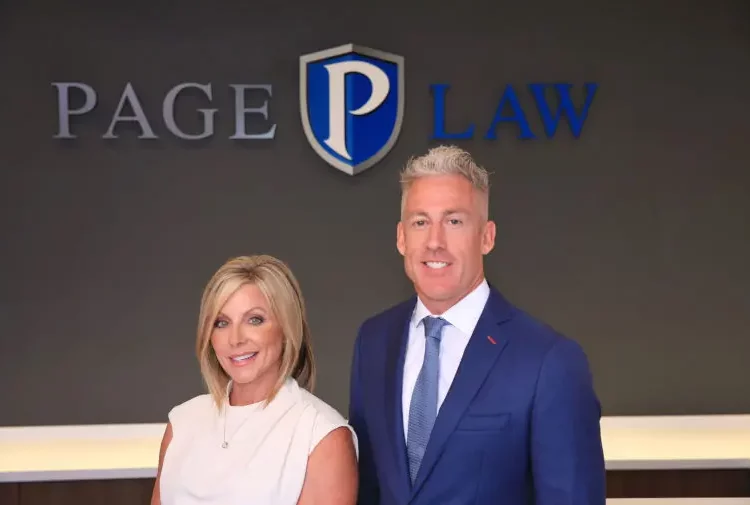Car accidents can be overwhelming, both physically and emotionally. Whether it’s a minor fender bender or a major collision, understanding the steps to take immediately after an accident and knowing your legal rights can make a significant difference in the outcome of your case. This article provides essential legal advice for car accident victims, ensuring you are prepared and informed.
Toc
Introduction to Car accident legal issue

Car accidents are an unfortunate reality of modern life, and they can happen to anyone at any time. While some accidents may be minor, others can have serious consequences for those involved. In addition to physical injuries, car accidents can also lead to emotional trauma, property damage, and financial burdens.
Understanding fault in a car accident
One of the most crucial aspects of a car accident case is determining who is at fault or responsible for the collision. In many cases, determining fault may not be as straightforward as it seems, and there may be multiple parties involved.
It’s important to note that each state has its own set of laws regarding fault in car accidents. Some states follow a “comparative negligence” system, where each party’s level of fault is taken into consideration when determining compensation. Other states have a “no-fault” system, which means that each driver’s insurance company will cover their damages regardless of who caused the accident.
What to Do Immediately After an Accident
The moments following a car accident can be chaotic, but taking the right steps can protect your health and your legal rights. First and foremost, ensure your safety and the safety of others by moving to a safe location if possible. Call emergency services immediately, even if injuries seem minor. It is crucial to obtain a police report, which can be an invaluable piece of evidence later on.
Next, exchange information with the other driver(s) involved, including names, contact details, insurance information, and vehicle registration numbers. If there are witnesses, collect their contact information as well. Document the scene with photos or videos, capturing the damage to all vehicles, any visible injuries, and relevant road conditions or traffic signs.
Seeking Medical Attention
Even if you feel fine, it’s important to seek medical attention as injuries from car accidents can manifest hours or even days later. A prompt medical evaluation not only ensures your well-being but also provides documentation that can be critical in any subsequent legal claims. Be sure to keep all medical records and follow your healthcare provider’s advice meticulously.
Understanding Your Legal Rights
Navigating the aftermath of a car accident involves understanding your legal rights and responsibilities. Depending on your location, laws and regulations regarding car accidents can vary significantly. Generally, you have the right to seek compensation for damages, including medical expenses, lost wages, and pain and suffering. Consulting with a personal injury lawyer can provide clarity on how to proceed and maximize your compensation. They can guide you through filing claims, dealing with insurance companies, and if necessary, taking legal action.
Steps to Take Immediately After a Car Accident

To summarize, here are the necessary steps to take immediately after a car accident:
1. Ensure Safety
As mentioned earlier, the first and foremost step after an accident is to ensure the safety of all individuals involved. If possible, move vehicles out of traffic to a safe location, such as the shoulder of the road or a nearby parking lot. Turn on hazard lights to alert other drivers and prevent further accidents. If anyone is injured, provide first aid if you are trained and wait for emergency responders.
2. Call Emergency Services
Even if the accident appears minor, calling emergency services is critical. Police officers will document the scene and create a report, which will be essential for insurance claims and potential legal issues. Emergency medical personnel can assess injuries and provide necessary care on the spot.
3. Exchange Information
Accurately exchanging information with the other driver(s) is vital. Obtain the full names, contact details, insurance information, driver’s license numbers, vehicle registration details, and the make, model, and color of their vehicles. Providing and collecting accurate information facilitates easier communication and claims processing later on.
4. Document the Scene
Gathering evidence from the accident scene can significantly benefit your case. Take clear photos of vehicle damage, license plates, road conditions, traffic signs, and any visible injuries. Note down the time, date, location, weather conditions, and the direction of travel. These details can help establish the facts of the accident.
5. Contact Your Insurance Company
Report the accident to your insurance company as soon as possible. Provide them with all the relevant information and documentation you have gathered. Your insurer will guide you through the claims process and inform you about what to expect next.
6. Consult a Lawyer
If you face difficulties with your insurance company, have significant damages, or are unsure of your legal standing, consulting a personal injury lawyer can be beneficial. A lawyer can help you navigate legal complexities, negotiate with insurance companies, and, if necessary, represent you in court. Their expertise can help you receive fair compensation for your losses.
7. Follow Up on Medical Treatment
Continue to follow your healthcare provider’s advice for any medical treatment or rehabilitation. Keeping track of your medical appointments, treatments, and expenses will not only help your recovery but also support any legal claims. Detailed medical documentation demonstrates the impact of the accident on your health and well-being.
How to Document the Accident Scene and Gather Evidence

Documenting the accident scene is crucial for building a strong case. Here are some tips on how to do so effectively.
1. Take Photos and Videos
Photographs and videos are some of the most compelling forms of evidence you can gather after a car accident. Ensure you take multiple shots from different angles to capture the full extent of the damage to all vehicles involved. Focus on close-ups of dents, scratches, and any other relevant details. Additionally, take wide shots to show the overall scene, including the positions of the vehicles, surrounding traffic, and road conditions. Don’t forget to document any skid marks, debris, or other physical evidence that may be pertinent. If possible, take videos as they can provide a more comprehensive view of the scene and help contextualize the accident.
2. Record Witness Statements
Witness statements can be invaluable. If there are people who witnessed the accident, ask if they would be willing to provide a statement. Record their accounts using your phone if they agree, and note down their names, contact details, and what they observed. Having an unbiased third party recount the events can greatly bolster your case, especially if there are conflicting accounts from the drivers involved.
3. Preserve Evidence
Keep all physical evidence related to the accident. This includes damaged personal property, medical braces, blood stains on clothing, and anything else that can serve as a tangible piece of evidence. Store these items securely and ensure they are well-maintained until they are needed for the claim process or court proceedings.
4. Keep a Detailed Record
Maintain a detailed record of everything related to the accident, from medical visits and treatments to missed workdays and expenses incurred. Log all communications with insurance companies, lawyers, and medical professionals. Having an organized and thorough documentation trail will support your case and can be easily referenced when needed.
5. Obtain a Copy of the Police Report
Police reports are critical documents that provide an official account of the accident. Be sure to request a copy from the responding law enforcement agency. The report will contain important details like the officers’ observations, driver statements, citations issued, and potentially the officer’s opinion on who was at fault. This can be pivotal information for insurance claims and legal disputes.
Guidance on When to Consult with a Car Accident Attorney

Consulting with a car accident attorney can often be the difference between receiving fair compensation and struggling through complex insurance claims alone. Here are some scenarios when you should consider seeking legal advice:
1. Severe Injuries or Significant Damages
If the accident resulted in severe injuries or significant property damage, it’s crucial to consult with an attorney. They can help evaluate the extent of your losses, including medical bills, future medical expenses, lost wages, and pain and suffering. An experienced lawyer will ensure that all potential avenues of compensation are pursued.
2. Disputed Liability
When the fault is contested, and there are differing accounts of how the accident occurred, having a lawyer can be invaluable. Attorneys can conduct independent investigations, gather additional evidence, and work with accident reconstruction experts to establish the facts and defend your position.
3. Insurance Company Disputes
Insurance companies often aim to minimize payouts, and you may encounter difficulties getting a fair settlement. If your insurer is disputing your claim, offering a low settlement, or denying coverage altogether, an attorney can negotiate on your behalf and ensure your rights are protected. They can also represent you in court if necessary.
4. Complex Legal Situations
Certain legal situations, such as accidents involving commercial vehicles, government entities, or multiple parties, can be particularly complex. These cases may involve various regulations and liability issues that a seasoned lawyer can navigate more effectively than someone without legal training.
5. Permanent Disability or Long-Term Care Needs
Accidents that result in permanent disability or require long-term care can drastically alter your life. An attorney can help you secure compensation that reflects the full extent of your long-term needs, including modifications to your home, ongoing medical care, and reduced earning capacity.
6. Uninsured or Underinsured Motorist Claims
If you are involved in an accident with an uninsured or underinsured motorist, recovering adequate compensation can be challenging. A lawyer can assist you in exploring other potential sources of compensation, such as your own insurance policy or third-party claims.
7. Settlement Offers
Before accepting any settlement offer from an insurance company, consulting with an attorney is wise. They can review the offer to ensure it is fair and comprehensive, taking into consideration all of your damages and future expenses. Without expert advice, you might settle for less than you deserve.
Tips for Dealing with Insurance Companies

After a car accident, you will likely have to deal with insurance companies. Here are some tips for handling these interactions effectively.
1. Be Honest and Accurate
When communicating details about the accident to your insurance company, it is critical to be completely honest and accurate. Provide a straightforward and clear account of the events, sticking to the facts without exaggeration or omission. Misrepresenting or embellishing the details can lead to issues with your claim and may even result in denial of coverage. Also, make sure to report the accident promptly and provide all requested documentation in a timely manner.
2. Avoid Speculative Statements
Avoid making speculative statements about the accident. If you don’t know the answer to a question, it is perfectly acceptable to say so rather than guessing or assuming. Statements like “I think” or “maybe” can be used against you in the claim process, as they can cast doubt on the accuracy of your account.
3. Keep Detailed Records
Document all conversations with your insurance company, including the names of representatives you speak with, the dates and times of the calls, and the key points discussed. This can help you stay organized and ensure that you have a clear record if disputes arise later. Additionally, keep copies of all written correspondence and any forms you submit.
4. Beware of Early Settlement Offers
Insurance companies may offer an early settlement in the hopes that you will accept it before the full extent of your injuries or damages is known. Be cautious of these offers, as they may not fully cover your losses. Consult with an attorney before agreeing to any settlement to ensure it is fair and adequate.
5. Do Not Sign Anything Without Legal Advice
Before signing any documents provided by the insurance company, seek legal advice. Some documents may contain clauses that limit your rights or affect your ability to pursue further compensation. A car accident attorney can review the documents and advise you on the best course of action.
6. Understand Your Policy
Make sure you understand the terms and coverage specifics of your insurance policy. Familiarize yourself with what is covered, any exclusions, and the process for filing a claim. This knowledge can help you navigate discussions with your insurer more effectively and ensure you receive the benefits you are entitled to.
7. Stay Calm and Professional
Interacting with insurance representatives can be stressful, especially after a car accident. However, it is important to remain calm and professional in all communications. Being argumentative or emotional can hinder the process and may negatively impact your claim. Approach each interaction with a clear, composed mindset to facilitate smoother discussions.
Conclusion
Navigating the aftermath of a car accident can be overwhelming, but by following these steps and seeking appropriate legal counsel, you can help ensure that your rights and interests are safeguarded. Keeping these tips in mind can make the process of dealing with insurance companies more straightforward and less stressful.
In conclusion, the period following a car accident is often filled with uncertainty and complexity. However, with the right strategies and professional help, you can effectively manage the challenges and secure the compensation you deserve. Remember to always be honest and detailed in your communications, resist the urge to settle quickly, and consult with an attorney before making any major decisions. Equip yourself with knowledge and support, and you’ll be better positioned to handle the intricacies of your case.





